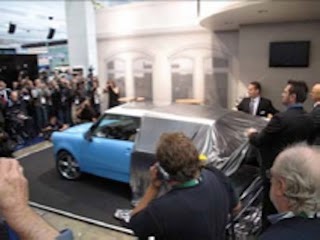However, as an automobile the Trabant lacked, well, a lot of things. As with many eastern European industries, it was unable to compete in a western setting and its production was discontinued in 1991.
And then at the 2009 Internationale Automobil- Ausstellung (IAA) in Frankfurt it was revealed that the Trabant might be resurrected! Called the Trabant nT (for “newTrabi”), the 21st century Trabant is a long way from its 1960’s ancestors, as it includes modern tech including an electric engine.
What does this have to do with fabbing? It turns out that one of the leading 3D print services, Materialise, is working closely with the manufacturer (Herpa) to build “both interior and exterior automotive parts with fused deposition modelling technology”. According to Materialise representative Patrick Lucht:
The German automotive industry is one of our largest customer groups. When we had the opportunity to take part in the ‘newTrabi’ project, we did not hesitate for a second to support the production of this vehicle that is so closely connected with the history of modern Germany. Also in the upcoming serial production we see a lot of potential for our additive manufacturing technologies, which are ideal for manufacturing vehicles in limited numbers.
Via Wikipedia and Materialise


